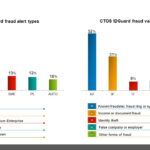GBG, the global technology specialist in fraud and compliance management, identity verification and location data intelligence, launched its inaugural report in Malaysia, titled “Future-proofing Fraud Prevention in Digital Channels: Malaysia FI Study“.
For Financial Institutions (FIs) in Malaysia, digital banking and cashless services have gone mainstream and are pegged to overtake the average APAC rate of adoption this year in particularly e-banking, e-statements, and e-wallet services. The indicators reflecting Malaysia’s growing digital lifestyle preference can be seen from their relatively high smartphone penetration at 78%, and the readiness in its internet infrastructure from the 80% penetration rate of their 4G networks[1].
The ability for Malaysian FIs to manage fraud in the entire digital customer journey is, however not yet on par with the progressive pace of digitalisation. Almost half of the respondents indicated that fraud detection during the onboarding phase is a challenge. This gap would be intensified as organisations (more than 25% of Malaysian FIs) plan to ramp up their rollout of instant banking and credit facilities, particularly instant bank account application, instant loans and instant credit card application. Instant financial services are of huge interest to consumers, providing them immediate gratification in obtaining financial support and merchandise, but fraud detection and prevention for these services are still in its nascent stage and both organisation and consumers could be more vulnerable to unchartered fraud types.
Fraud shows no signs of ebbing. With the rise of digitally connected devices and continuous streams of Personally Identifiable Information (PII) or personal data being shared online, fraud and cyber financial crimes have likewise increased. In Malaysia, this is exacerbated by the COVID-19 pandemic and Movement Control Order (MCO) where consumers are propelled to rely more heavily on online and cashless transactions to lead to even high volumes in scams and frauds.
From the research, all fraud typologies from social engineering, first party fraud, cyber attacks and AML (anti money laundering) are projected to increase in 2020-21. In particular, 54% of the FIs in Malaysia are expecting an increase in scams and 51% on stolen IDs. Just in August, it was reported that Macau scam had incurred the heaviest financial loss at RM49.9 million across 1,001 cases since the implementation of the MCO. The other two highest financial losses arise from non-existent loans at RM18.3 million across 1,582 cases, and ecommerce at RM17 million across 2,500 cases[1].
June Lee, APAC Managing Director of GBG, commented, “Looking at 2020-2021, the COVID-19 pandemic will continue to push people and businesses to take digital-first approaches to financial transactions. Our research indicates that 21% of FIs in Malaysia have started to lay the groundwork in establishing end to end fraud management platforms. However, the expected growth in scams would require added layers of data intelligence to assess the digital tools which are used to onboard and transact with the financial organisations, as well as to obtain a better holistic view of the intent and integrity of the individuals. Being agile in harnessing new fraud prevention technology will enable FIs to get ahead of escalating and fast-growing emerging fraud patterns and secure the digital trust of their customers.”
Chee Leong Chin, APAC Chief Technology Officer of GBG, added, “The proliferation of PII is making consumers increasingly vulnerable and susceptible to fraud and identity crimes. To combat this, GBG continues to innovate and be ahead of market needs with its tech stack ranging from end to end fraud platforms, to pre-emptive fraud detection like machine learning and data intelligence from best in class players across identity proofing, mobile and IP assessment, cyber threats, credit risk and location intelligence.”
GBG collaborated with The Asian Banker to conduct a survey across 324 respondents from financial institutions (FI) in six Asia Pacific (APAC) countries, Australia, China, Malaysia, Indonesia Thailand, and Vietnam.
(This content is surmised from a press release)








